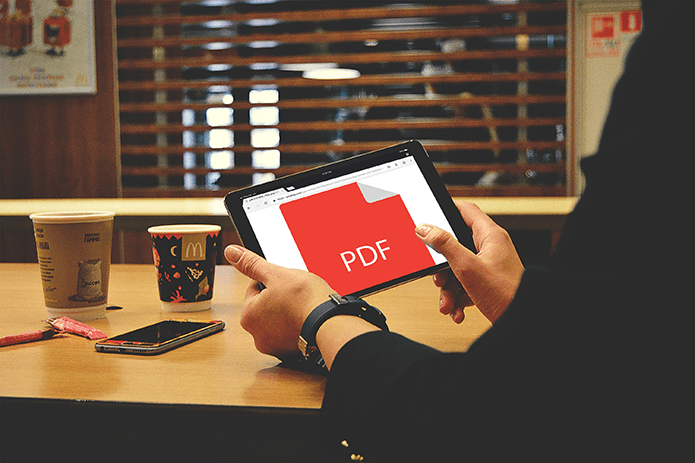Chrome also plays an active role in protecting your system from malware. By default, it blocks files that it deems as unsafe from downloading onto your computer. Sadly, that also means that you won’t be able to download files from certain sites that you know are trustworthy but Chrome thinks otherwise. And then there’s also the whole deal with Chrome blocking automatic downloads that originate from the same source. That’s very annoying at times. While it’s not a great idea to have these security features turned off, let’s throw caution to the wind and look at how you can do just that.
Unblock Potentially Unsafe Downloads
Chrome protects you from known phishing sites and malicious downloads using an integrated feature called Safe Browsing. Turning this feature off stops the browser from blocking downloads that it would otherwise deem unsafe. Since you are susceptible to online threats without Safe Browsing, only consider turning off the feature while unblocking any restricted downloads. Step 1: Open the Chrome menu (click three-dot icon on upper-right corner), and then click Settings. Step 2: Scroll down on the Settings page, and select Security under the Privacy & Security section. Step 3: Select the Radio button next to No Protection (Not Recommend). On the confirmation pop up that then shows up, select Turn Off. Chrome will not block any downloads after you made the changes. Also, it won’t warn you of potentially compromised or malicious sites that may attempt to phish for personal information or infect the browser by other means. To block unsafe downloads later, head back into the Chrome Settings panel and turn on the switch next to Safe Browsing.
Unblock Automatic Downloads
On sites that perform multiple downloads consecutively (such as on file conversion sites), you may run into issues due to a built-in content restriction. That is in place to prevent websites from downloading malware automatically alongside other files. While it’s possible to remove this restriction, Chrome will still prompt you for your permission when initiating a download unless you choose to whitelist sites actively. Step 1: On the Chrome Settings panel, click Advanced, and then click Site Settings under Privacy and Security. Step 2: Scroll down and select Automatic Downloads under the Additional Permissions section. Step 3: Turn on the switch next to ‘Do not allow any site to download multiple files automatically.’ It should then read as ‘Ask when a site tries to download files automatically after the first file (recommended).’ Step 4: Chrome should now let sites perform automatic downloads. However, you will still be asked for permission whenever a site begins to initiate a download. If that becomes a hassle, click the Add button next to Allow, and then add the URL of the site that you wish to whitelist. Just like with Safe Browsing turned off, only allow automatic downloads on sites that you completely trust.
Staying Safe
Removing the restriction on unsafe downloads isn’t the smartest of choices considering the amount of malware going rampant daily. If you still want to stay secure with Safe Browsing turned off, and automatic downloads enabled indefinitely, consider using a security extension or a malware removal utility. Let’s look at a few.
Avast Online Security
With over 10 million users and a 4.4-star rating on the Chrome Web Store, you can’t go wrong with Avast Online Security. After adding the extension to Chrome, you can easily check whether a site is compromised or not with a click to the Avast icon next to the URL bar. And you can also contribute to the Avast community with your feedback on what you think about a particular site. The extension also monitors search engine results, and you can find straight out of the bat if certain sites carry malicious intent. You should see a green-colored check mark on sites that are safe to visit. Avast Online Security also provides you with access to a range of additional options such as the ability to block ads, trackers, and phishing attempts. Avast Online Security
McAfee SECURE Safe Browsing
McAfee SECURE Safe Browsing is a fantastic extension to determine if a site is safe or not. A single click to the McAfee SECURE Safe Browsing icon provides a host of security metrics about malware, phishing intent, encryption, and popularity. And of course, a big green-colored banner to denote if a site is secure. If you don’t want all the extra frills associated with Avast Online Security, then McAfee SECURE Safe Browsing is the perfect alternative. McAfee SECURE Safe Browsing
Malwarebytes
After downloading a file, it’s vital that you check it for malware before opening it. Yes, you have Windows Defender, but if you prefer a dedicated, simple, and efficient malware removal tool instead, install Malwarebytes. It’s free and works wonders for detecting malicious code in downloaded files. Right-click a file before opening it, and then select Scan with Malwarebytes. If everything looks good on the scan results, you can then go ahead and open it usually with confidence. It’s vital that you do this on files that would be otherwise be blocked with Chrome’s Safe Browsing feature turned on. Malwarebytes also offers a free 14-day trial for a Premium version with real-time web protection against malicious sites. But since you are merely looking to stay safe with Chrome’s Safe Browsing and automatic downloading restrictions turned off, the free version should be more than sufficient. Download Malwarebytes Note: You can also try one of the premium VPN services like NordVPN or ExpressVPN to give your privacy a boost. Guiding Tech users can grab a special discount on ExpressVPN where you can opt for a 15-month subscription (sign up using this link) and get billed for the first 12 months.
Be Careful!
So, that’s how you should go about circumventing Google Chrome’s restrictions on potentially unsafe or automatic downloads. Once again, employ caution once you turn off these security measures. Usually, Windows Defender can stop a full-scale malware infection from some innocent-looking, yet malicious, executable that you ran straight after downloading. Hence, make sure to use an extension or a malware scanner. You can never know for sure if a site or a file is safe otherwise. Next up: Want to drill down on the basics of staying safe online? Click the link below and get yourself up-to-date. The above article may contain affiliate links which help support Guiding Tech. However, it does not affect our editorial integrity. The content remains unbiased and authentic.






















